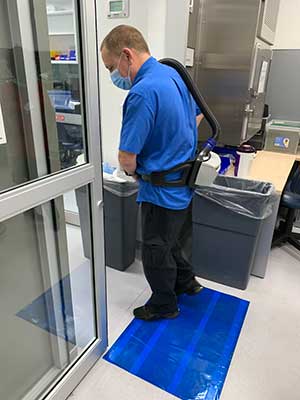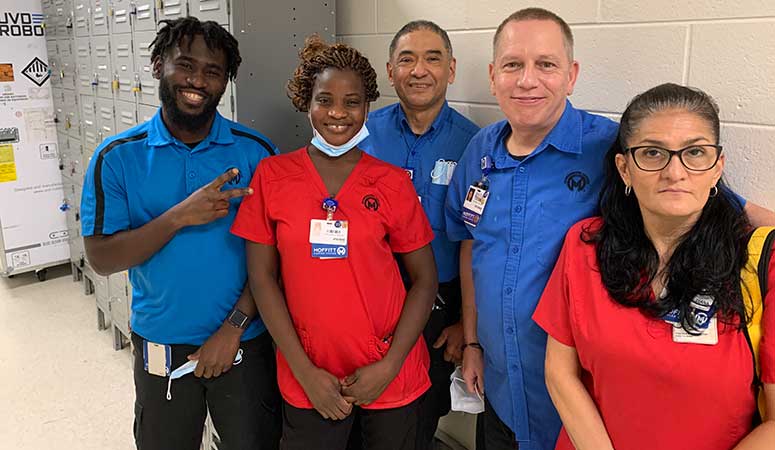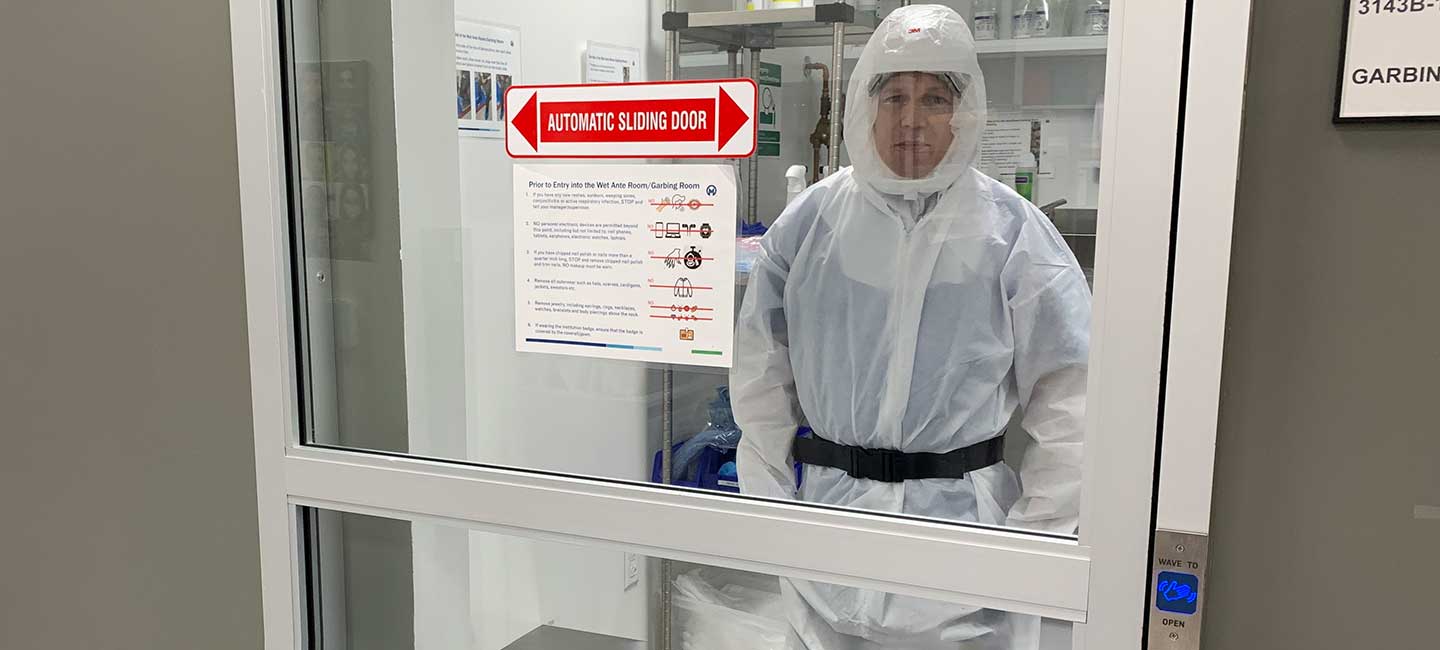Cleaning Hospital Sterile Spaces Requires Expertise
During the pandemic, many people delayed screenings and doctor visits out of fear of contracting COVID-19. Thanks to the dedication of the Department of Environmental Services, Moffitt Cancer Center’s patients were able to receive cancer screenings and treatment in a safe space where they could heal without fear of infection. The team members in Environmental Services truly are the unsung health care heroes. The third week of September is dedicated to them as Environmental Services Week.
Moffitt has many spaces that demand sterile environments including the infusion pharmacy, where medications like chemotherapy drugs are mixed by pharmacists and stored. These areas need terminal cleaning, special cleaning procedures in health care used to control the spread of infectious diseases.
Team leader Richard Diaz has been with Moffitt’s Environmental Services for more than a decade. His team is responsible for completing the terminal cleaning of the infusion pharmacy, which takes especially careful skill due to the dangerous chemicals used and the level of disinfection required.
“It’s not the most comfortable outfit,” joked Diaz, referring to the hazardous materials suits they wear. His team wears head-to-toe protective equipment, including air packs that provide air circulation in their sealed suits. “It’s very hot and uncomfortable, but the suits protect us from the cleaning chemicals.”
Before working at Moffitt, Diaz wrote flight manuals for mechanics and pilots. He carries many of the skills from that past line of work into his current job.
“If you make a mistake on a plane, a lot of people are going to get hurt,” Diaz said. “And it’s the same here. There’s no room for mistakes because lives are at stake. It’s a responsibility I feel to keep people safe.” He says it takes deliberate strategy and attention to detail to complete a terminal clean.
“The cleaning has to be very, very on point,” Diaz said. “You have to cover every single corner of that room.” As team leader, Diaz also must account for his team members. “It takes a lot of coordination because things should be cleaned in a specific order.”

Before entering the infusion pharmacy, the Environmental Services team steps on a sticky pad to eliminate contaminants on their shoes.
Before crossing the threshold into the infusion pharmacy, the team members step on a sticky floor pad to eliminate possible contaminants from their shoes. Using proper procedures for donning and doffing protective personal equipment, they step in their suits, cross into the sterile environment and begin cleaning.
The Environmental Services workers are a critical part of the patient’s care team. They might not provide medical care, but their work is essential to the success of patients’ treatment. It’s not something these workers take lightly, either. The interactions with patients sometimes weigh heavily on them.
Diaz has shared meaningful moments with countless patients and their families over the past 11 years. He knows what it’s like to have a loved one diagnosed with cancer. His sister was treated at Moffitt for breast cancer.
“I used to clean the elevators,” Diaz said. “I would see the same man every night and we would have great conversations. One day, I saw him and learned that his wife had passed. To this day, it still breaks my heart thinking of him.”
Deep down, Diaz is a nurturer and a cheerleader. “I feel like a nurse sometimes,” Diaz said. “I see so many patients. You can’t get attached, but it’s so hard to do. I just want to say to them, ‘You got this, you can do it.’”
Tony Sanders is the director of the Department of Environmental Services. He’s proud of his team for keeping the hospital staff and patients safe during a heightened time of infection prevention.
“Since the beginning of the pandemic, our team has provided a high level of cleaning and disinfection to all Moffitt facilities,” Sanders said. “Taking care of over 3 million square feet of facilities is no small task during a nonpandemic time. Doing this under austere conditions shows bravery, intestinal fortitude and strength. This time has truly been a testament to their hard work.”

Environmental Services team members include, from left, Steven Jean-Francois, Adjo Viviane Adande, Carlos Vega, Richard Diaz and Diana Pinzon. They must navigate dangerous chemicals to skillfully disinfect the infusion pharmacy.



